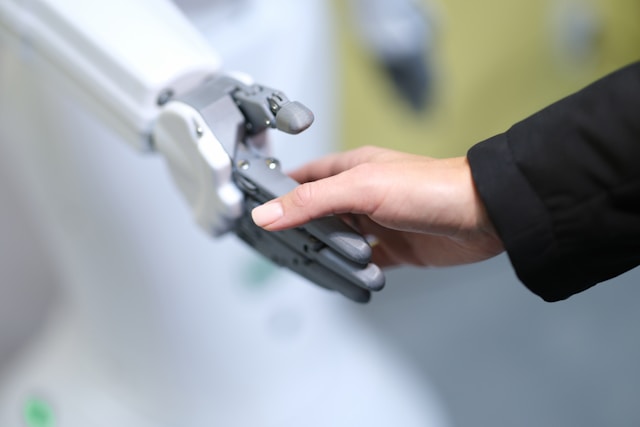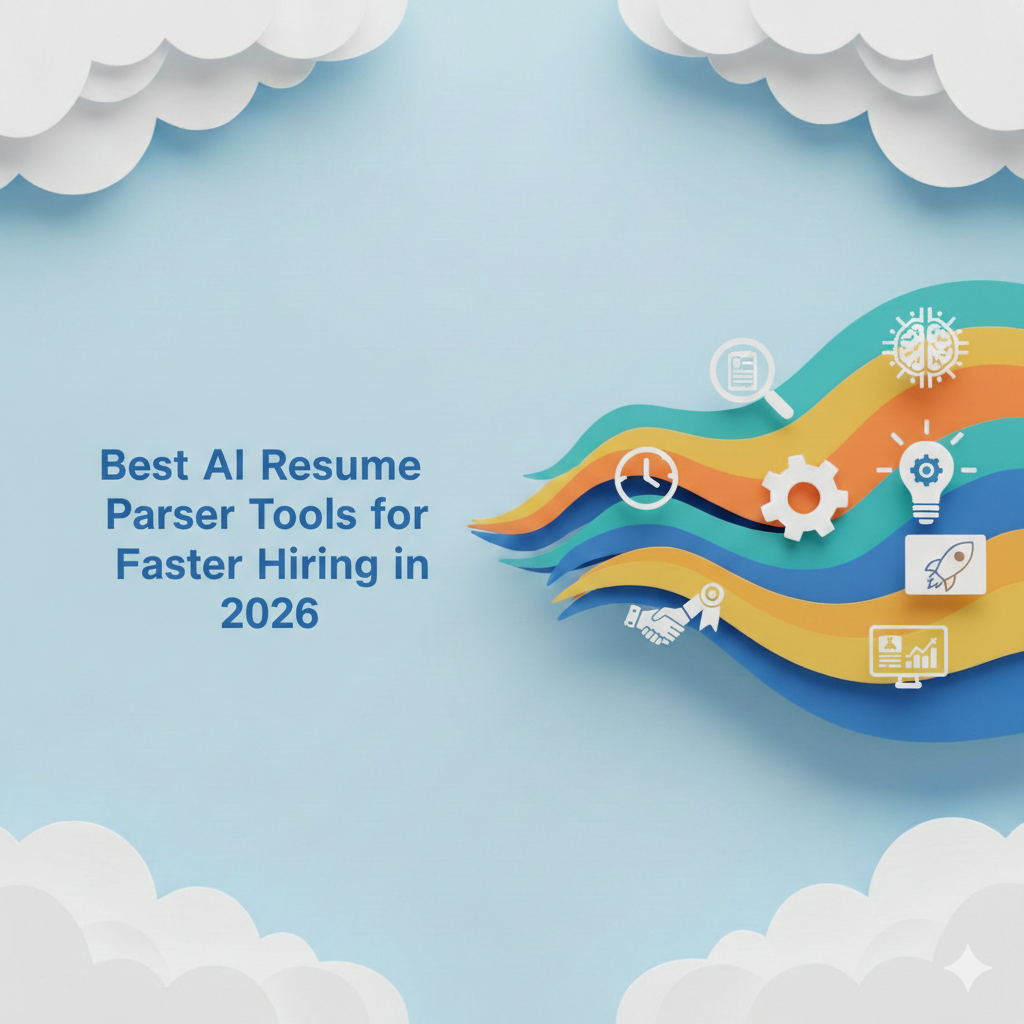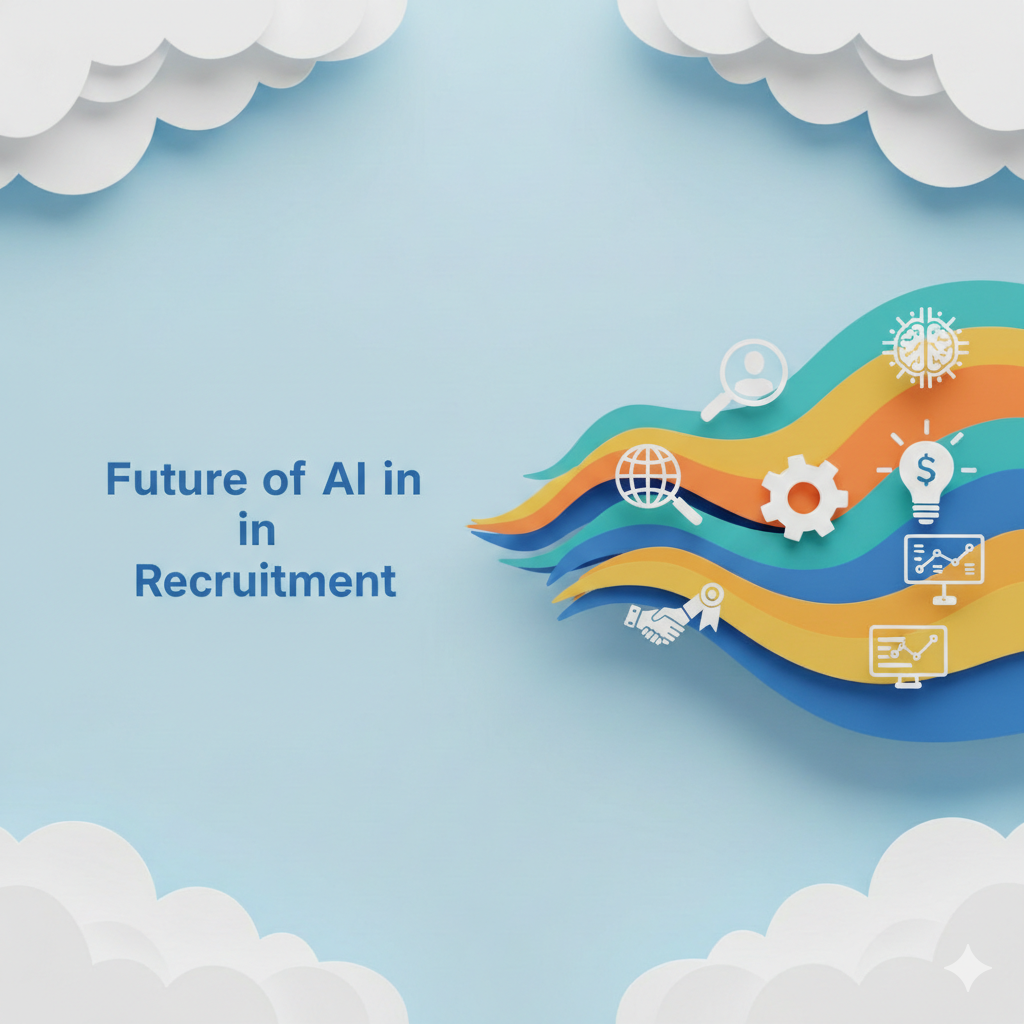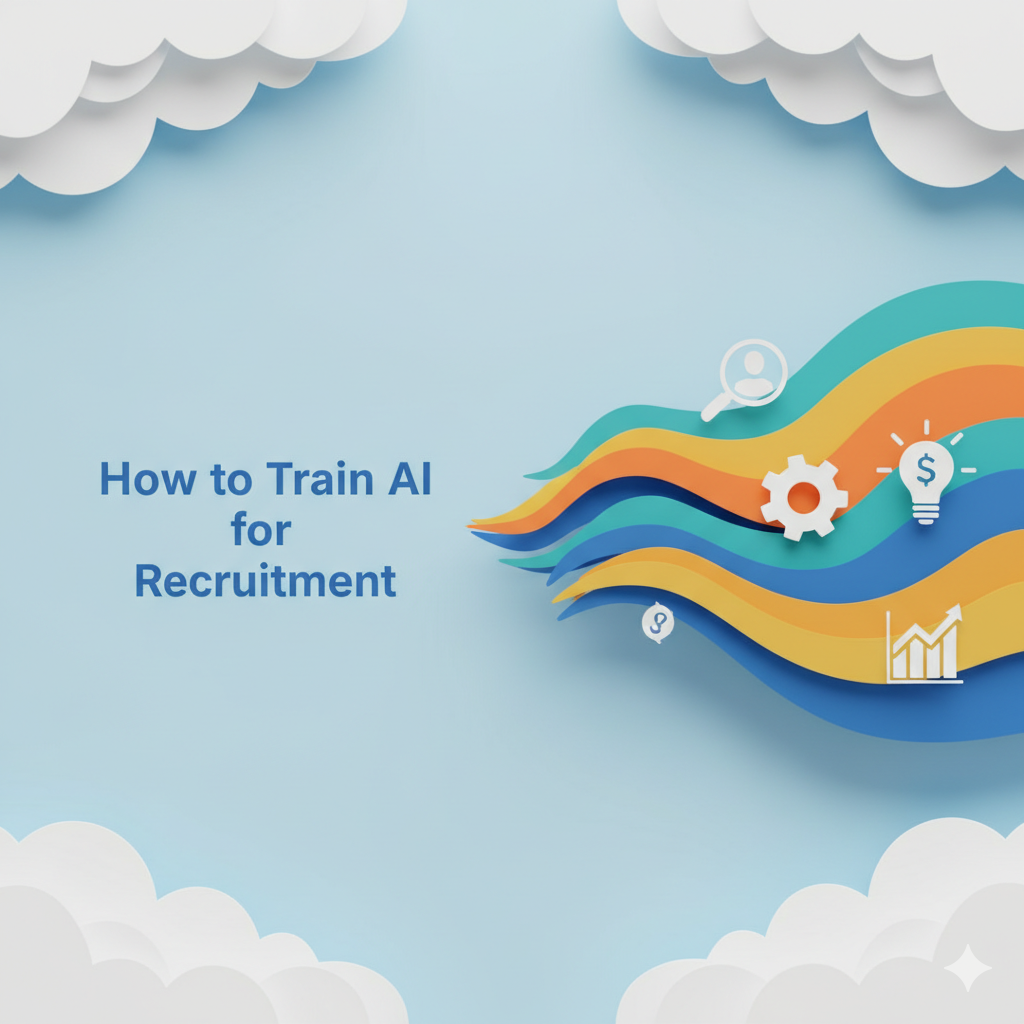AI Interview Analysis for Soft Skills Made Simple and Friendly

Assessing soft skills is one of the most frustrating parts of hiring, until it’s not.
You can’t measure things like teamwork, communication, or problem-solving from a resume or a phone screen. That’s where AI interview analysis changes the game, making soft skills easier to evaluate and a lot more fair.
HRMLESS uses conversational AI interviews to screen, score, and schedule candidates, so you don’t have to. It analyzes how people communicate, solve problems, and respond under pressure, 24/7, with no manual effort.
In this blog, we’ll talk about:
- How AI evaluates soft skills like communication and adaptability
- What tools like HRMLESS analyze (and why it matters)
- Ways AI reduces bias and improves your hiring experience
Let’s break down how AI turns interviews into real insights you can use.
Understanding AI Interview Analysis for Soft Skills
AI interview analysis gives you a fast, deeper look at candidates, beyond what’s on paper. It checks out how folks talk, act, and whether they seem like a good fit. The tech breaks down complex human behaviors into actionable data.
Definition and Purpose
With AI interview analysis for soft skills, software listens to how candidates speak and react during interviews. It’s built to spot things like teamwork, problem-solving, and communication, and you don’t have to sit through every interview minute by minute.
The idea is to provide you with a clearer understanding of whether someone aligns with your company culture and the job itself. It flags strong soft skills early, which means you can move faster and avoid many of the usual biases.
Key Features
AI tools pay attention to what candidates say, how they say it, and even their body language. You’ll see things like:
- Speech patterns that show confidence or clarity
- Emotion detection that picks up on excitement or nerves
- Facial expressions that hint at honesty or engagement
All these details come together to give you scores on key behaviors. No need to watch every video yourself. Our tool and similar platforms integrate with your ATS, handling interview scheduling so you can regain time and typically see better candidates coming through.
Types of Soft Skills Assessed
AI interview analysis zooms in on the skills that actually matter for collaboration and getting work done, like:
- Communication: How well someone explains things
- Emotional intelligence: Handling feelings in conversation
- Adaptability: Rolling with unexpected questions
- Problem-solving: Tackling challenges and making decisions
AI helps you identify individuals who will be a good fit for your team and stay with you. It digs deeper than resume buzzwords to show you who’s really got potential.
How AI Evaluates Soft Skills
AI doesn’t just listen for the “right” answer; it assesses how people communicate, express emotions, and behave during interviews. It breaks down how you speak, your body language, and your overall vibe to provide a clearer sense of your soft skills.
Speech and Language Analysis
AI tools analyze your tone, pace, and word choices to assess your communication skills. They notice if you’re clear, confident, and if your answers make sense. It’s a quick way to identify critical thinkers who can articulate their thoughts effectively.
Our AI detects hesitation or canned responses. That way, it’s not just about what you say but how genuine you sound. It also checks if your language is calm and professional or if you appear stressed. This approach enables you to compare candidates side by side with real data, eliminating the need to rely on gut feelings.
Nonverbal Communication Detection
AI watches for facial expressions, eye contact, and posture during video interviews. These little cues can say a lot, like if someone’s engaged or checked out. Eye contact usually means they’re interested; slouching might mean they’re not.
Our tool uses AI to catch quick smiles or frowns, which hint at your emotional state. Recruiters get a better sense of how you handle pressure or show enthusiasm, without having to guess. This nonverbal information helps identify candidates who’ll mesh with your culture and communicate effectively, even beyond words.
Emotional Intelligence Assessment
Emotional intelligence (EQ) is crucial for effective teamwork and leadership. AI assesses EQ by observing how you respond to challenging or emotionally charged questions. It looks for empathy in your tone, whether you remain calm under pressure, and if you adjust your responses to different situations. If you can read the room and respond with sensitivity, your EQ score increases.
AI-driven EQ scoring helps screen people more fairly, focusing on reactions that can be actually measured, not just hunches.
Popular AI Tools and Platforms
A bunch of AI tools now help you check out soft skills during interviews. They analyze tone, language, and behavior, measuring aspects such as communication, empathy, and critical thinking. Some even score candidates instantly and handle scheduling, which is honestly a relief.
Overview of Leading Solutions
Top AI platforms are all about giving you clear, unbiased insights into soft skills. They utilize machine learning to analyze speech, word choice, and the way people respond to questions. You get feedback on communication, teamwork, and problem-solving, without the guesswork.
Some tools allow candidates to interview at any time, which makes scheduling significantly less of a headache. They also reduce bias by holding everyone to the same standards. Our tool, for instance, automates pre-screening and ranks people based on both soft and hard skills so that you can move faster and smarter. Most of these platforms seamlessly integrate with your job boards or ATS, ensuring a smooth workflow and eliminating the need for extra steps.
Comparing AI Interview Platforms
When you’re picking between AI platforms, here’s what to look for:
- Soft Skills Analysis: Does it check tone, language, and critical thinking?
- Automation: Can it schedule interviews, send reminders, and rank candidates?
- Integration: Will it work with your current ATS and job boards?
- Bias Reduction: Does it actually give fair, consistent scores?
- User Experience: Is it easy for you and for candidates?
Our tool, for example, offers automated scoring and scheduling, and even cuts no-shows by half. It’s designed to help you find good people quickly, without a ton of extra work.
Best Practices for Candidates
Being prepared and knowing how to showcase your soft skills can really help in AI-driven interviews. It’s about being transparent, consistent, and, honestly, just being yourself (but maybe your best self).
How to Prepare for AI-Driven Interviews?
AI-driven interviews are becoming more common, and a little preparation can help you feel confident and perform your best.
- Know the Format: Check the setup in advance to ensure a smooth process. Platforms like ours often let you complete interviews online at your convenience. Test your device and internet connection.
- Practice Out Loud: AI evaluates not only your words but also your tone, pauses, and clarity. Keep your language simple, direct, and confident.
- Set the Scene: Select a quiet, well-lit space that is free from interruptions. Ensure the AI can clearly pick up your voice and facial expressions.
- Dress the Part: Even if you’re at home, wearing professional attire helps you maintain the right mindset and present yourself confidently.
With the proper preparation, AI interviews feel less intimidating and give you the chance to show up at your best.
Tips for Demonstrating Soft Skills Effectively
AI-driven interviews not only assess your answers but also evaluate how you communicate and present yourself. Keep these tips in mind:
- Speak Clearly and Confidently: Use complete sentences, avoid filler words like “um” or “like,” and show confidence in your delivery.
- Show Your Thought Process: For situational questions, explain your reasoning step by step to highlight your problem-solving and critical thinking skills.
- Balance Authenticity with Professionalism: Be yourself while maintaining focus, positivity, and professionalism. AI tools measure tone, enthusiasm, and teamwork cues.
- Leverage the Technology: Tools like ours are designed to detect and highlight your strengths when you prepare well and communicate clearly.
By practicing these habits, you’ll ensure your soft skills shine through, even when the interviewer is an AI.
Benefits of AI Interview Analysis for Organizations
AI interview analysis helps your team hire faster and more fairly, while keeping candidates informed throughout the process. It can handle a large number of applicants efficiently and removes a significant amount of bias from the process. Plus, it makes the experience smoother and more flexible for candidates.
Reducing Hiring Bias
AI tools evaluate candidates based on their skills and answers, rather than relying on gut feelings or first impressions. This reduces unconscious bias related to age, gender, or background. Your decisions get more objective because everyone’s measured the same way.
We use intelligent algorithms to analyze communication and problem-solving during interviews, so it’s about job fit, not just who “seems right.” It tracks how candidates stack up, so you can spot your best options without guessing. Using AI like this helps you build diverse, well-rounded teams based on real potential.
Enhancing Candidate Experience
Candidates can take AI interviews at any time, on any device, with no need to squeeze into a tight schedule. That flexibility is a big plus for busy or remote applicants. Automated reminders and instant scoring keep people engaged and informed. Your top prospects hear back quickly, so you’re less likely to lose them to other offers or have them disappear. It leads to more reliable hires, with fewer instances of ghosting.
AI interviews can even feel less stressful, as candidates know their answers are being reviewed by data, not someone’s mood on that particular day. It’s a fairer shot for everyone.
Challenges and Limitations
AI soft skill analysis is helpful, but it’s not perfect. Some tools fall short in terms of accuracy, and there are genuine concerns about ethics and privacy that cannot be ignored.
Accuracy Concerns
AI tools measure aspects such as tone and word choice to assess soft skills, but sometimes they misread emotions or fail to account for cultural differences. A shy candidate might get a lower score, even if they’d do great in the role. You could miss out on good people or accidentally screen out someone who just interviews differently. AI’s scoring is all about its preset rules, which can’t catch every nuance.
AI brings useful consistency, but it shouldn’t totally replace human judgment. Platforms like HRMLESS aim to strike a balance between AI and your own expertise to mitigate these issues.
Ethical and Privacy Considerations
AI interview analysis collects sensitive data, including voice recordings, language patterns, and more. That raises privacy concerns, as candidates may not be aware of exactly how their information is used or stored. You need to get clear consent and have strong data protection policies in place. There’s also the risk of bias if the AI was trained on skewed data.
Being transparent about how AI scores soft skills is crucial, as it enables you to explain decisions and maintain fairness. Our tool incorporates safeguards to address these ethical challenges, aiming for unbiased and secure hiring processes.
Future Trends in AI Interview Analysis
AI interview analysis is becoming sharper at identifying soft skills, such as communication, critical thinking, and tone. New tools dig into how candidates express themselves, not just what they say. This helps you figure out who’ll actually fit in, not just who knows the right answers.
One hard trend to ignore is fairness. AI systems, including HRMLESS, continue to improve their algorithms to reduce bias. Everyone gets a more equal shot, which just makes hiring better and more diverse.
There’s also a move toward multi-channel data. AI will soon blend text, video, and voice responses to provide a more comprehensive picture of each candidate. Our tool is even planning to add voice engagement so that people can speak naturally, makes the process feel a bit more human, doesn’t it?
Automation isn’t slowing down, either. Imagine interviews happening 24/7, candidates ranked instantly, and schedules sorted automatically. That’s a lot less manual work.
For example:
Feature
Benefit
AI Pre-Screening
Candidates can interview anytime
Scoring & Filtering
Only top candidates move forward
Automated Scheduling
Fewer no-shows, faster interviews
SMS & Email Nudges
Keeps candidates engaged
As these tools get smarter, you’ll see hiring that’s faster, fairer, and just less of a grind. You can finally focus on the right people, not just the process.
Final Thoughts
Hiring for soft skills doesn’t have to be a guessing game anymore. With tools like HRMLESS, you get real insights, not just resumes, so you can move faster, reduce bias, and connect with candidates who actually fit your team. Automated analysis of tone, language, and behavior means you’re no longer stuck screening one by one or second-guessing your instincts.
Better candidates. Less ghosting. Zero chaos. If you’re tired of slow hiring cycles and missed opportunities, it’s time to stop doing it all manually. Start using HRMLESS today and see how effortless, data-backed hiring can be. Book a demo now and let your AI interviewer do the heavy lifting.
Frequently Asked Questions
Wondering how AI reviews soft skills? Here’s where you’ll find practical ways to show your abilities, what AI actually looks for, and how to get ready for AI-driven interviews.
What are the best ways to demonstrate soft skills during an interview?
Try to show clear communication by speaking calmly and actually listening to whoever’s interviewing you. Share real examples that highlight teamwork, problem-solving, or how you adapt when things change. Staying polite and keeping a positive attitude goes a long way, too.
Can you identify the top soft skills that AI analyzes in candidates?
AI tends to focus on communication, teamwork, emotional intelligence, and problem-solving. It’ll pick up on flexibility and how you react when you’re put on the spot.
How does AI technology evaluate soft skills in an interview setting?
AI analyzes data from your answers, tone, and overall behavior. It checks your word choices, how fast you respond, and sometimes even your facial expressions if it’s a video interview. All of this comes together to build a picture of your skills.
What techniques are used to improve soft skills for AI-assisted interviews?
Try practicing common interview questions and record yourself; you might notice things you’d miss otherwise. Work on speaking clearly, staying relaxed, and sounding confident. Role-playing with a friend can help too, even if it feels a little awkward at first.
How can one prepare for a soft skills assessment by AI in job interviews?
Research the company and the job so you can tailor your answers to fit. Practice using straightforward language. For video interviews, making sure your space is quiet and distraction-free can really help you focus.
What are the challenges in accurately assessing soft skills through AI?
AI doesn’t always pick up on tone or context the way people do. Sometimes, it just glosses over cultural hints or misses those little emotional details that matter. Platforms like HRMLESS attempt to address this issue with more innovative learning models, aiming to reduce mistakes and bias; however, there’s still considerable room for improvement.
Featured
Subscribe to ournewsletter
Related posts
Explore the world of photography with our curated selection of
portfolio websites that showcase creativity and innovation.




